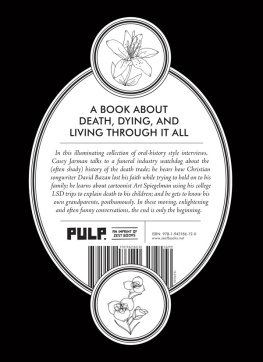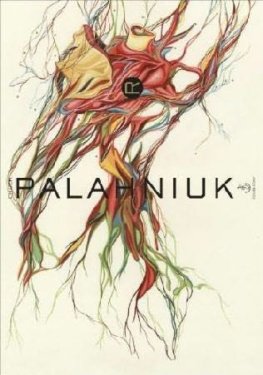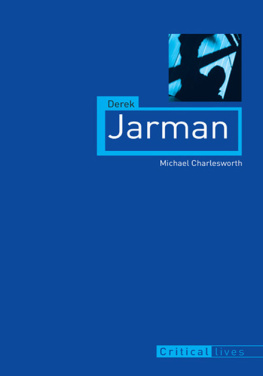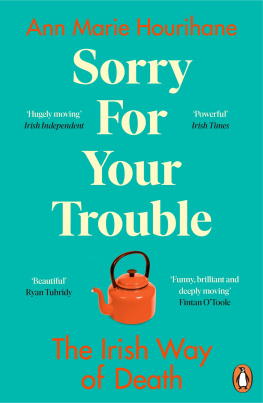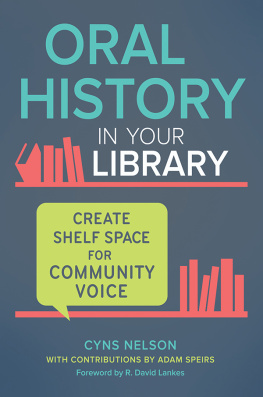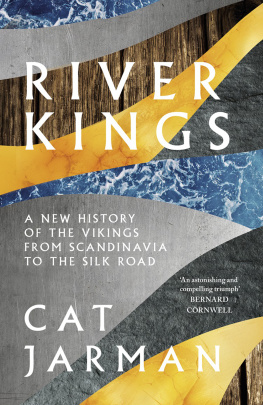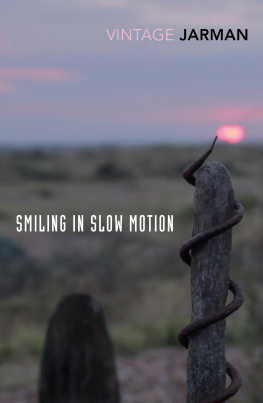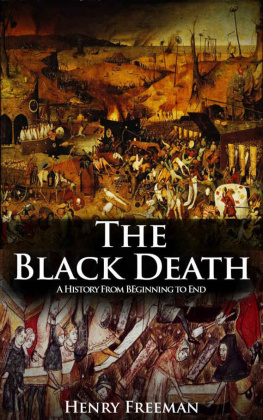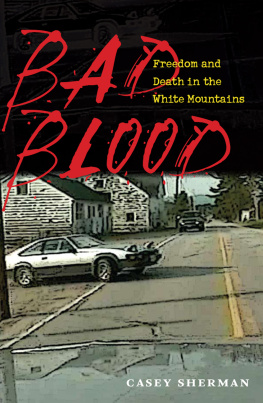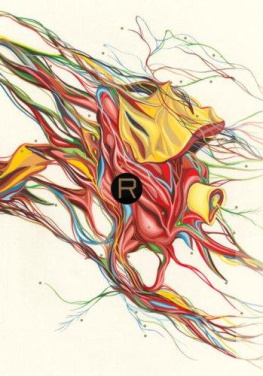Text copyright 2016 Casey Jarman | Illustrations copyright 2016 Brooke Weeber | All rights reserved. No part of this publication may be reproduced or used in any form or by any meansgraphic, electronic, or mechanical, including photocopying, recording, or information storage and retrieval systemswithout the written permission of the publisher. | Social Science / Death & Dying | ISBN: 978-1-942186-12-0 | Publisher: Hallie Warshaw | Editor: Daniel Harmon | Marketing: Emma Boyer | Design: Adam Grano
ALL I KNOW IS WHAT THE WORDS KNOW, AND THE DEAD THINGS, AND THAT MAKES A HANDSOME LITTLE SUM, WITH A BEGINNING, A MIDDLE AND AN END AS IN THE WELL-BUILT PHRASE AND THE LONG SONATA OF THE DEAD.
CONTENTS

BY THE AUTHOR
GRIEF SERVICES COORDINATOR
FOUNDER OF THE URBAN DEATH PROJECT
TWIN BROTHER
FORMER EDITOR, MORBID CURIOSITY
SONGWRITER
BARBER, AUTHORS MOTHER
SOCIAL WORKER, AUTHORS FRIEND
PSYCHEDELIC SCIENTIST
LIFE-CYCLE CELEBRANT
RACONTEUR, AUTHORS UNCLE
CONSUMER RIGHTS ADVOCATE
FREELANCE WRITER
PHILOSOPHER
HOSPICE VOLUNTEER
COMMUNITY ORGANIZER
CARTOONIST
VIDEO GAME DESIGNER
FORMER DEATH ROW WARDEN
AND ADDITIONAL THANKS
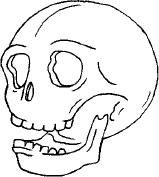
INTRODUCTION
BY THE AUTHOR
I grew up with photographs of my grandparents, but no actual grandparents. They all died before or shortly after I was born. None of them held me as a baby, or told me about the old days, or passed on family secrets from a bygone era. My folks told me stories about those mysterious figures from worn old photographs, trying to create some sort of bond between usbut all of the stories just swirled together. Was it Grandpa Frank who owned a butcher shop? Or was that Moms dad? Wait, no, he was a preacher, right? Cue the look of disappointment in my parents eyes. I wish you could have known them, they still say.
For my mom and dad, this is all a considerable loss. But the gift of never knowing (and, heaven forbid, loving) someone is that you never mourn them, either. The strongest emotion I can muster from looking at those old photos is a sense of lost history: sort of a skipped beat that Ive hardly noticed. After all, whatever your family is likedivorced or together; genetic or adopted; abusive or supportivebecomes your own take on normal. I always figured my situation was a pretty good trade: Missing out on some vague connection to an older generation was so much better than the alternative of having a beloved family member die and leave me heartbroken. I watched friends go through that, and for them it was earth-shattering. I counted myself lucky.
Of course, knowing that none of my grandparents stuck around long enough to meet me also left me with the relative certainty that my own parentsboth smokers well into my teenage yearswouldnt live to old age, either. I didnt know how my mom and dad would croak (lung or liver cancer? heart attack? car crash?), but I was pretty sure I wouldnt make it into my twenties without at least one of them dying. It didnt help that my mom talked about death all the time: One day Ill be gone, and youll wish youd been nicer to me! That warning echoed in my head three years ago, when her diabetes put her in the emergency room and led to a succession of long hospital stays.
When I was younger, I tried to steel myself for my parents inevitable deaths, and I put perhaps a bit more distance between us than the average rebellious teenager would find appropriate. This was the best defense I could come up with: Keep them (and death) at arms length. We werent a particularly tight family unit to begin with: My parents divorced when I was a kid, and my older brother signed up for the navy before I got to high school. I already struggled to figure out what I had in common with my mom, beyond our love of music; I already called my dad Mike, a habit I picked up from my brother, whose genetic material (and not much else) came from a guy he barely knows. When I left home for college, which was only an hour away, I didnt make it home or call much. I rarely responded to my moms lengthy, sentimental letterseven when I could parse her cursive.
Im thirty-five now, and both my parents are still alive. Ive never lost a close friend. Even my uncle Johnthe closest thing I have to a grandparentis healthy at eighty-seven years old, despite his decades-long habit of predicting that he isnt long for this world. If I have a heart attack, he likes to say, I just want to lay down in my bed and die. Ive lived a very full life. I dont want to end up with those fucking doctors.
Over the course of the last decade, though, death has steadily shot up the charts of my preoccupations and displaced the other anxieties of adulthoodearning money, going gray, and making some grand contribution to the world. Why worry about any of that stuff? Why even get up in the morning? Death always wins. The game is rigged.
Thats an abbreviated version of the thought spiral Ive fallen into a lot over the past few years. That gnawing backdrop of fearmy inability to see the trees for the deep, dark, infinite forestisnt a brand of depression that I feel comfortable talking about. It doesnt seem special. Every other human lives with the knowledge that theyre going to die, and they seem to go about their daily business without too much trouble. So I lock up these questions. Sometimes they sneak out well past midnight with a good friend whod rather change the subject. Usually they come packaged in desperate little jokes. Occasionally they come out in interviews with artistswho must think Im a bit gothin my day-job life as a music writer.
Theres one concrete fear that frightens me even more than the existential stuff, though. It goes: What if all my luck in avoiding death so far is just a setup for a truly crushing grand finale? What if, like a gambler who keeps letting it ride, I lose everything (and everyone) at once instead of parting with small sums along the way and hopefully learning how to lose in the process? This strikes me as a real and tangible eventuality, one that Im woefully unprepared for. Its a reality that not only is out to steal my future but is actively souring my present. It begs me to withdraw further from friends and family, so it doesnt hurt too much when theyre gone.
Some people write books to try to live past their natural expiration dates. I wrote this one in the hopes of beating death altogether. Talking to people about death for a year seemed like a pretty solid way to combat my own fear of it. Call it exposure therapy. If you have a fear of heights, spend some time in the mountains. If youre scared of physical pain, get yourself into a fistfight. If youre scared of death, what can you do, short of dying? You can spend a year of your life talking about it.
This is not, of course, a definitive oral history of deaths from the dawn of time to present day, as the books title might suggest. But between the tongue and the cheek of the title, I came to believe in it. There are threads running through these stories that I didnt expect to find: the desire for meaningful ritual; the destructive power of taboo; the search for new perspective via spirituality or drugs; self-expression as a tool for processing grief; the intrinsically bittersweet experience of belonging. Deaths history is written by the living, and death affects us in the same ways it always has. So maybe the books title isnt too far off after all.

